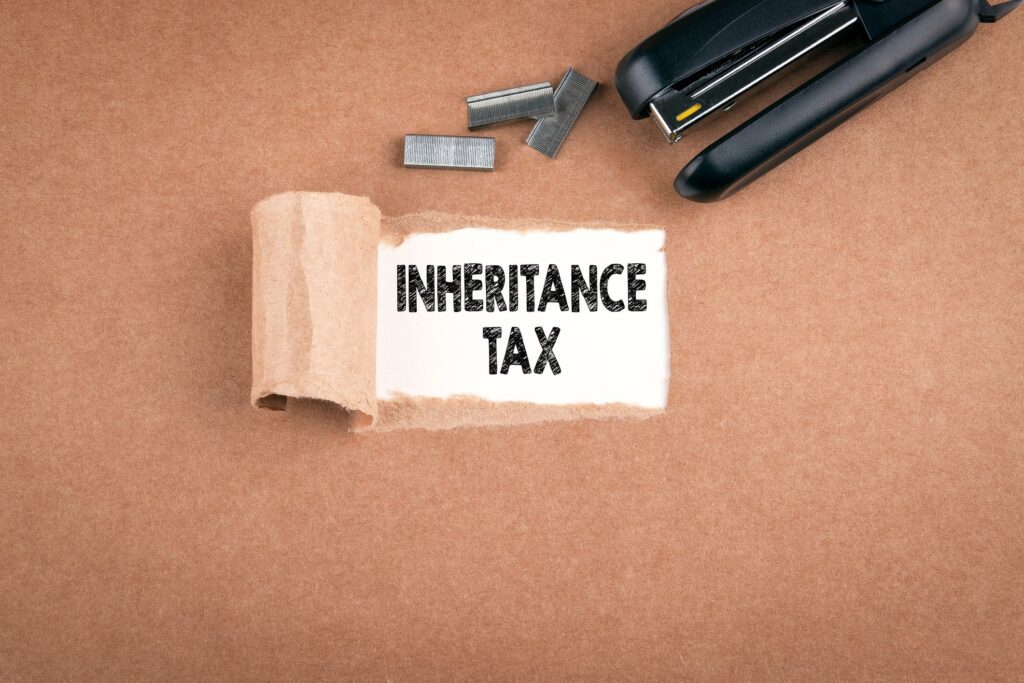
At Aristone Solicitors, we’ve helped countless individuals secure their future and support charities through Free Wills Month. Writing a will isn’t just about deciding who gets what—it’s about making sure your wishes are carried out exactly as you intend, without confusion, delays, or legal battles.
The reality? Even the closest families can fall apart over an estate. That’s why careful planning isn’t just a good idea—it’s essential.
Here’s what you should know before meeting your solicitor, how to prevent inheritance disputes, and why choosing the right executor is just as important as what you leave behind.
Before You Meet Your Solicitor: What You Need to Consider
Writing a will isn’t something you do every day. It’s not just signing papers and moving on. A well-structured will takes thought, strategy, and precision.
Before your meeting, ask yourself these key questions:
- Who do you want to inherit your estate? Not just your main assets, but sentimental belongings. Who gets the house? The savings? That antique clock that’s been in the family for generations?
- Who will be your executor? This isn’t just a title—it’s a serious legal responsibility. Choose wisely, because a bad executor can turn a straightforward estate into a legal circus.
- Do you need to set up trusts? If you have young children, dependents, or complex assets, a trust might be the best way to protect them.
- Have you thought about potential family conflicts? If someone expects an inheritance they won’t receive, consider addressing this in your will—or explaining your decision. Disputes often arise when people feel blindsided.
- Have you made any significant gifts in your lifetime? If you’ve given large financial gifts to one family member, others may challenge the will, arguing that money should be deducted from the inheritance.
Top Five Ways to Prevent Inheritance Disputes
Families fight over estates for many reasons—some justified, some completely irrational. The most common disputes happen when people feel left out, surprised, or suspicious about how a will was created. Here’s how to keep things clear and prevent unnecessary legal battles.
1. Be Honest About Your Plans
One of the biggest reasons families end up in court is because someone expected more than they received. If you know a family member will be disappointed, it may help to explain your reasoning while you’re still alive. If that’s not possible, leaving a letter alongside your will can prevent future disputes.
2. Choose the Right Executor—Or Risk a Legal Nightmare
Your executor isn’t just there to hand out cheques. They have to settle debts, handle taxes, deal with disputes, and make sure every detail of your will is followed.
But here’s where things go wrong: When the executor is also a beneficiary.
Family executors who stand to inherit often turn into something else entirely—gatekeepers of the money, suddenly deciding what’s “fair” and what isn’t. Every past financial decision becomes a battlefield.
- Dad gave you money while he was alive? That should count against your inheritance.
- Mum promised me the house? Prove she didn’t.
They control the process, delay distributions, and drag probate out for months—sometimes years—justifying why they should walk away with a bigger share.
And what happens if the executor dies before the estate is settled? Now, a new one needs to be appointed, which doesn’t happen automatically. If no replacement was named, suddenly all beneficiaries may need to step in as executors. Too many voices, too many opinions, too many problems.
The solution? A professional executor eliminates all of this. No bias. No self-interest. No unnecessary delays. Just an impartial expert who ensures your estate is handled efficiently, legally, and exactly as you intended.
3. Keep Records of Lifetime Gifts—Or Prepare for a Fight
If you’ve given money, property, or valuables to one child during your lifetime, expect it to be brought up after you’re gone. Not as a fond memory, but as a bargaining chip in who gets what from your estate.
Here’s how it plays out:
- Your will says Lucy gets £50,000. Simple, right?
- But then a family executor—maybe even a sibling—steps in and says, “Hold on, Dad already gave you £25,000 while he was alive, so that should count against your inheritance. You’ll only get £25,000 now.”
- Lucy now has two choices—accept it, even if it feels unfair, or challenge it in court, meaning expensive legal fees, delays, and no guarantee of winning. Either way, she loses.
Even if those gifts were given more than seven years ago, they can still be challenged. While gifts within the last seven years must be included for tax purposes, older gifts can still spark disputes if someone argues they unfairly reduce what’s left in the estate.
How to prevent this? If you don’t want lifetime gifts deducted from someone’s inheritance, state it outright in your will. If you do, make sure it’s documented properly, with no room for debate.
4. Keep Your Will Safe—Because If It Disappears, So Do Your Wishes
Your will can be legally airtight, perfectly drafted, and crystal clear, but if the wrong person finds it first, it can vanish.
And under UK law, if your original will is missing after your death, the courts assume you revoked it. Unless someone can prove otherwise (which is costly, time-consuming, and far from guaranteed), your estate will be distributed under intestacy rules.
That means:
- That friend, charity, or distant relative you wanted to leave money to? They get nothing.
- The person you intentionally excluded? They might suddenly inherit.
- That carefully structured estate plan you put in place? Completely undone.
The safest solution? Store your original will with Aristone Solicitors. Let your executor and beneficiaries know where it is, and if you want, provide them with a copy.
Final Thoughts: Why Choosing the Right Executor Matters
People think being named an executor is an honour. It sounds like a title that should come with a trophy or a framed certificate. But in reality, it’s a legal responsibility—one that can turn into a logistical nightmare if mishandled.
That’s why so many of our clients choose Aristone Solicitors as their professional executor—because they want absolute certainty that their estate is handled exactly as it should be.
And like anything valuable, it’s not unlimited. We can only take on a select number of new clients each year.
If you want to guarantee your estate is handled fairly, efficiently, and without family drama, this is your moment.
Which Charity Will You Leave Your Mark On?
Every charity in Free Wills Month is doing something incredible—whether it’s saving lives, protecting animals, supporting mental health, or helping the next generation thrive. The question isn’t should you leave a gift in your will. It’s who will you choose to help?
Here are just a few of the organisations you can support:
Medical & Health Charities – Because Science Saves Lives
- British Heart Foundation – Because heart disease is still a leading cause of death, and research can change that.
- Breast Cancer Now – Funding research, supporting those affected, and working toward a cure.
- Stroke Association – Helping survivors regain their independence and funding critical research.
- Alzheimer’s Research UK – Because no one should lose themselves to dementia.
- Marie Curie – Providing end-of-life care and support for terminally ill patients.
Animal Welfare – Because They Need Us Too
- Dogs Trust – Giving abandoned and mistreated dogs a second chance.
- Cats Protection – Helping stray cats find forever homes.
- PDSA – Free and low-cost veterinary care for pets in need.
- Guide Dogs – Giving independence back to visually impaired individuals.
Veterans & Armed Forces – Because They Fought for Us
- Royal British Legion – Supporting veterans and their families.
- RAF Benevolent Fund – Providing financial, emotional, and housing support for the RAF community.
- Help for Heroes – Helping wounded veterans rebuild their lives.
Humanitarian & Social Support – Because Everyone Deserves a Chance
- Age UK – Ensuring older people live with dignity and independence.
- NSPCC – Fighting to protect children from abuse.
- Mencap – Advocating for people with learning disabilities.
- Oxfam – Tackling global poverty, disaster relief, and human rights issues.
- Mind – Offering support and resources for mental health.
Emergency & Rescue Services – Because Every Second Counts
- RNLI Lifeboats – Volunteer lifeboat crews saving lives at sea.
- The Salvation Army – Providing shelter, meals, and support to those in crisis.
Why Leave a Gift in Your Will?
Let’s get one thing straight: You don’t have to be rich to leave a meaningful legacy. Even a small percentage of your estate can make a life-changing impact on these charities.
And here’s the thing: charities rely on gifts left in wills. Without them, so much of the work they do simply wouldn’t happen.
So, when you’re writing your will, think about this—what if part of your legacy wasn’t just about your family, but about changing the world for the better?
Here’s How to Make It Happen
1️. Book your Free Wills Month consultation with us. We’ll help you plan your estate properly, so your will reflects exactly what YOU want.
2️. Decide if you want to leave a charitable gift. It’s entirely optional, but even 1% of your estate could help save lives, protect animals, or fight injustice.
3️. Make sure your will is legally sound. We’ll handle the paperwork, so no one can challenge your wishes.
4️. Breathe easy, knowing you’ve done something incredible. Because planning your legacy shouldn’t be stressful—it should be empowering.
Don’t wait. Book your Free Wills Month appointment today. Your future—and your legacy—deserve it.



